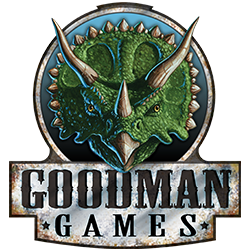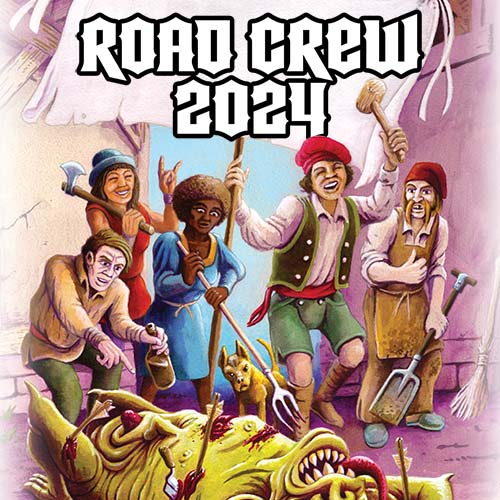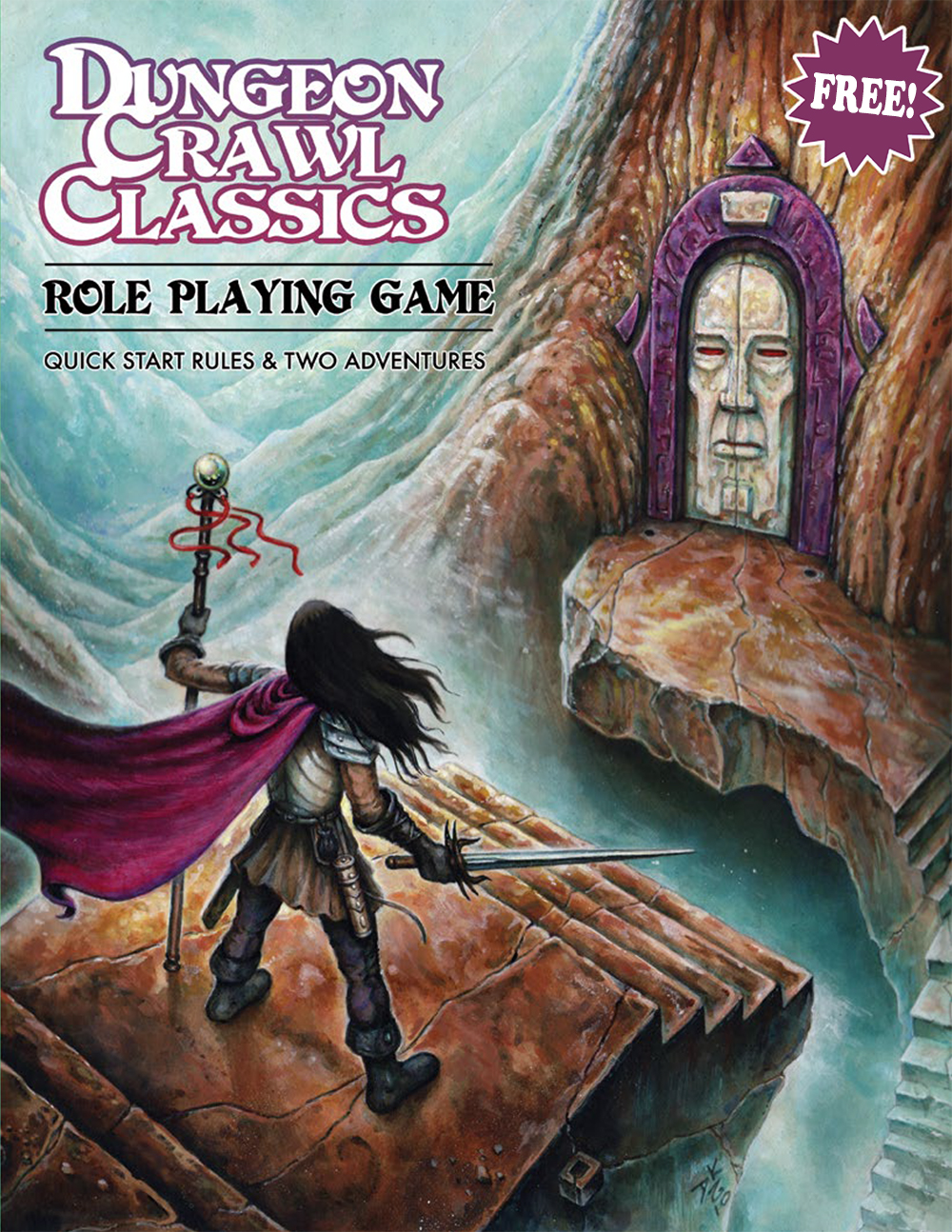A Look at A Book of Blades from Rogues in the House Podcast
by Bill Ward
The folks behind the Rogues in the House Sword & Sorcery Podcast have applied their old school sensibilities to create an anthology of contemporary sword-and-sorcery from today’s modern practitioners. Edited by Matthew John, A Book of Blades delivers fifteen tales from an array of authors that fans keeping up with the genre – and especially readers of Tales From the Magician’s Skull – will be sure to recognize, such as Howard Andrew Jones, Scott Oden, John C. Hocking, S.E. Lindberg, Jason Ray Carney, and John R. Fultz, to name a few. From grimdark to swashbuckling, from all-out-action to moody introversion, the variety of tales found within A Book of Blades presents a fine cross-section of modern sword-and-sorcery.
Kicking things off is “By the Sword” by frequent contributor to Tales From the Magician’s Skull John C. Hocking (Conan and Emerald Lotus). A tale of bloody revenge, of red rage in a land of ice, “By the Sword” is a pedal-to-the-metal storm of non-stop action told with concision and heart. Wolf the Hunter’s one-man battle to avenge his family, clan, and kin culminates in a confrontation above a lake of fire, within the Foundry of Ice. An excellent pace-setter for the anthology as a whole, Hocking’s offering stands alongside the strongest stories in the book. Next up is “Ghost Song” by Chuck E. Clark (Co-Editor of Whetstone: The Amateur Magazine of Pulp Sword and Sorcery). When young Turkael, only newly attained of the rank of hunter, joins the men of his village to bring down a night-black beast of murderous stealth, he’ll need more than a bronze-tipped spear to deal with the mysterious Hogato. As finely-honed as a hunter’s instinct, Clark’s coming-of-age story presents a convincing world, a strange peril, and an appealing protagonist in deft strokes.
“Ghost Song” is a promise of things to come, as non-Western inspired settings make frequent appearances throughout the book. One of the most fun stories in this vein was “The Curse of the Wine” by J.M. Clarke, a lean, mean story of a half-(dark) elf outcast warrior-wizard robbed of his object of power, and his bloody quest to get it back. And Howard Andrew Jones (The Ring Sworn Trilogy), Managing Editor of Tales From the Magician’s Skull, gives us another tale in his ongoing Dabir and Asim series. A historical fantasy series set in the Abbasid Caliphate of the 9th Century, Jones’ Dabir and Asim are a fun, “Arabian Nights meets Holmes and Watson meets Fafhrd and the Gray Mouser” series of adventures comprising The Chronicles of Swords & Sand (book one: The Desert of Souls). In “The Serpent’s Heart,” the pair find their ship destroyed by a ferocious sea serpent. The brilliantly logical Dabir and his fierce protector, Asim, meet a potential ally in the coldly calculating Lady Xin and her formidable Chinese vessel. But are the combined Arab and Chinese crews truly the hunters of the beast, or the hunted? Jones’ historical fantasies draw on real world parallels to underpin the veracity of his world, while the strangeness of myth – and invention – serve to give these tales their sword-and-sorcery edge. Always recommended.
Another standout piece is “The Spine of Virens Imber” by Nathaniel Webb. Shar the Spearman is on a crusade to free his wife’s soul from the ruler of hell, but as we are introduced to him he is the captive of the vicious, pseudo-human, demon worshiping adveni of the desert city of Undarx Quattuor. Immune to their ritual magic, Shar grabs at his chance for freedom when he comes to the personal attention of the ancient sorcerer Virens Imber. Moving from the arid wastes to the verdant landscapes of a pre-dawn world, L.D. Whitney’s “Last of the Swamp Tribe” presents a stone age Valley of Edon menaced by a green death. Gornah, outsider to his people for his gift of speaking with animals, and his wolf companion Greywind, take on a vegetative foe for a village of semi-human Stone-Talkers. The Paleolithic-style setting and appealing man-beast duo at the heart of the story are a perfect foil for the unnatural weirdness that must be defeated.
Weirdness, of course, takes center stage in many a story herein. From Jason M. Waltz’s (Robert E. Howard Changed My Life, Rogue Blades Entertainment) visceral vision of a kind of nightmare Valhalla in “The Breath of Death,” or the grimdark erotic trappings of “Embracing Ember” from S.E. Lindberg, another in his horror-heavy ‘dyscrasia-‘ infused Doctor Grave tales (TFTMS #9), to Matthew John’s feverish madman’s tragic quest for renewed strength in “The Gift of Gallah,” Cora Buhlert’s cursed ruins in “The City of the Screaming Pillars,” or the unexpected miracle that culminates Jason Ray Carney’s (The Dark Man, Whetstone, TFTMS #10) “Two Silvers for a Song of Blood.” The elements of the odd, the uncanny, and the otherworldly are key components of sword-and-sorcery, and A Book of Blades positively overflows with weird.
“Crawl,” by Scott Oden (The Doom of Odin, The Lion of Cairo) begins almost as playful stab at dungeon crawling with a world containing subterranean lairs and ‘kralleurs,’ those bearing a Letter of Marque from the King to plunder dungeons of their treasure, as well as ‘crawlers,’ those who do the same thing, unlicensed. But soon Oden turns things around in an unexpected direction when his desperate protagonist, Lisabet Fouad, bent on robbing a nest of goblin-like Czernobog to save her farm from the taxman, finds that she might actually have more in common with the monsters than she does with the authorities.
Rounding out the volume comes “The Blood of Old Shard” by John R. Fultz (Worlds Beyond Worlds, The Shaper Trilogy, TFTMS #10), another of my favorite stories in this strong collection. It follows Gnori the Bold, famed warrior and leader, the Breaker of Chains, as he is captured by the forces of the Vampire Queen of Aymeeri and must escape. Full of sword-and-sorcery staples like galley slave revolts, sea monsters, and wild sorcery, the tale veers into a meditation on duty and freedom as Gnori finds himself literally embracing an enemy, and beginning a new, humble, private existence. But Gnori, despite besting both undeath and powerful magic, finds that there are truly some bonds that he cannot break. “The Blood of the Old Shard,” is a fine mix of spectacle and substance that shows, as do many of the strongest pieces in the book, just what can be achieved with sword-and-sorcery.
A Book of Blades also has an art appendix of original illustrations (including one from Frank Frazetta’s granddaughter, Sara Frazetta) in the back of the book, which I think would have been better served by being integrated in among the stories themselves (perhaps it was a formatting issue?), but it’s always nice to have art alongside sword-and-sorcery, as visual representations have been critical to the genre’s overall reception since its earliest pulp roots. Overall, the anthology is a very fine entry into the current mini-boom of contemporary sword-and-sorcery offerings featuring both new voices and old, and a nice variety of setting and style. The crew from The Rogues in the House Podcast’s enthusiasm is readily apparent in this collection, and it is to be hoped that they continue offering a print venue for today’s practitioners of ‘an earthier sort of fantasy’ long into the future.









